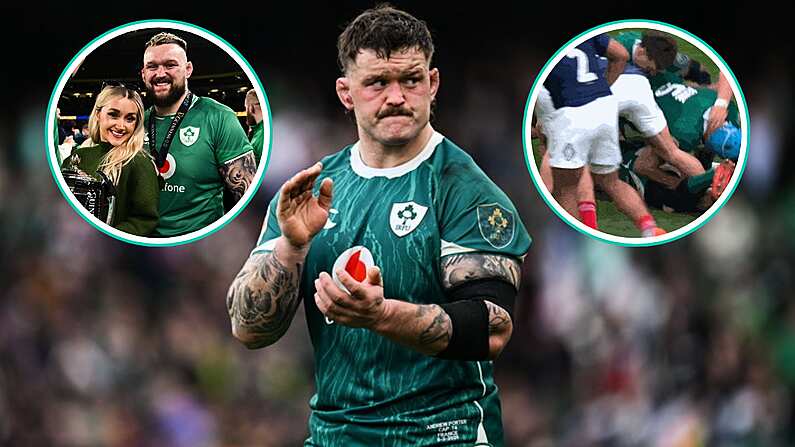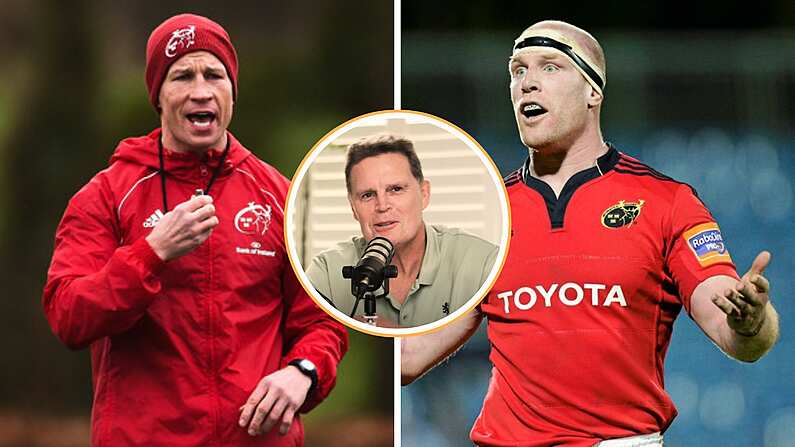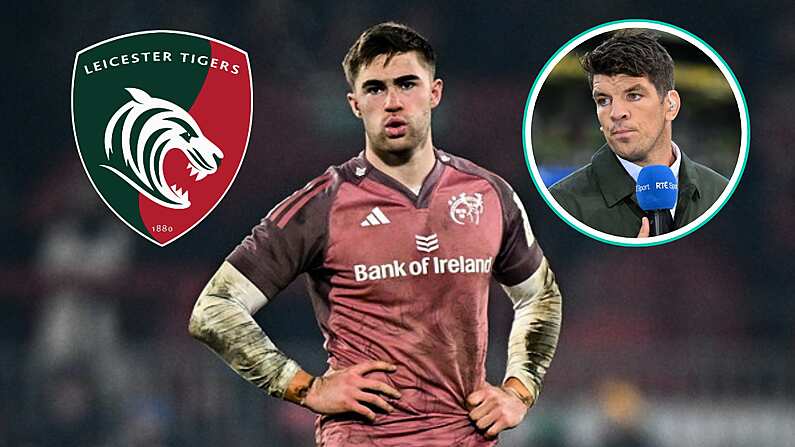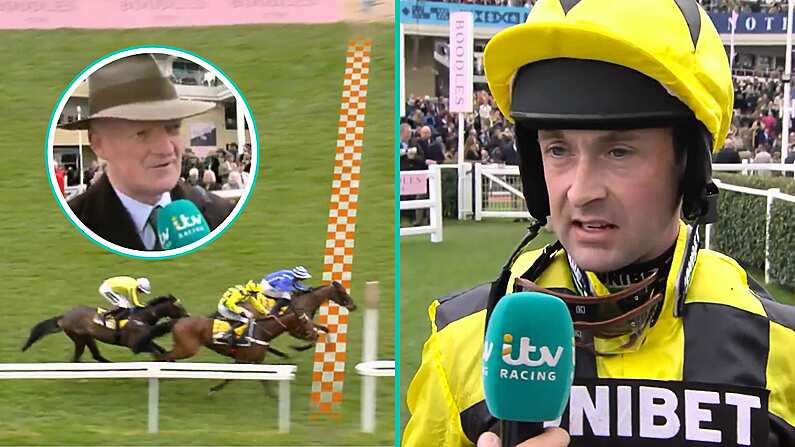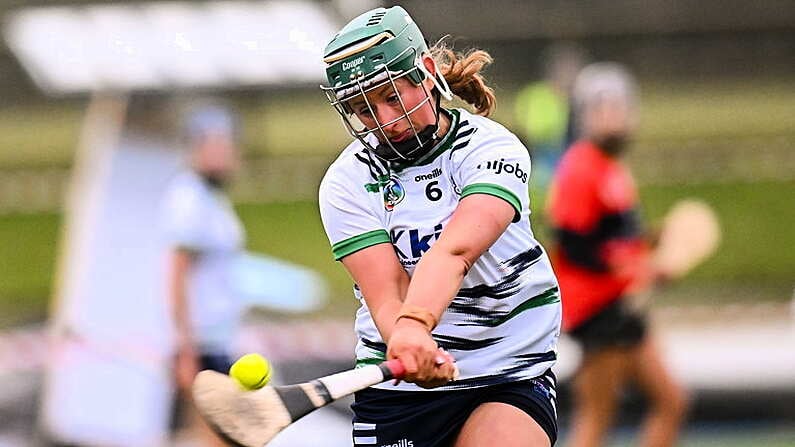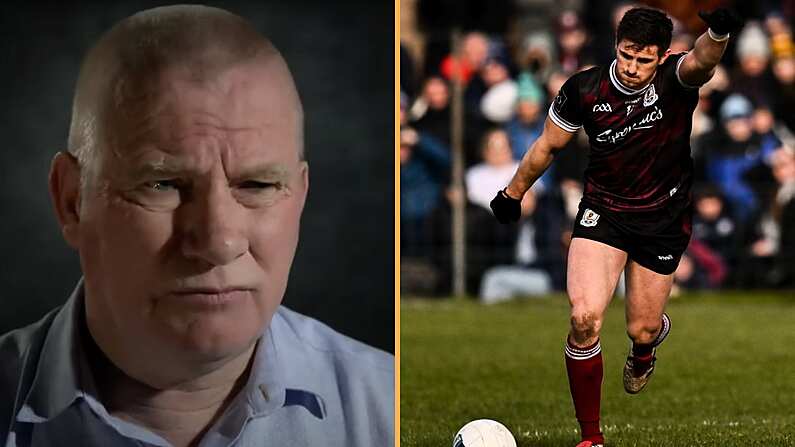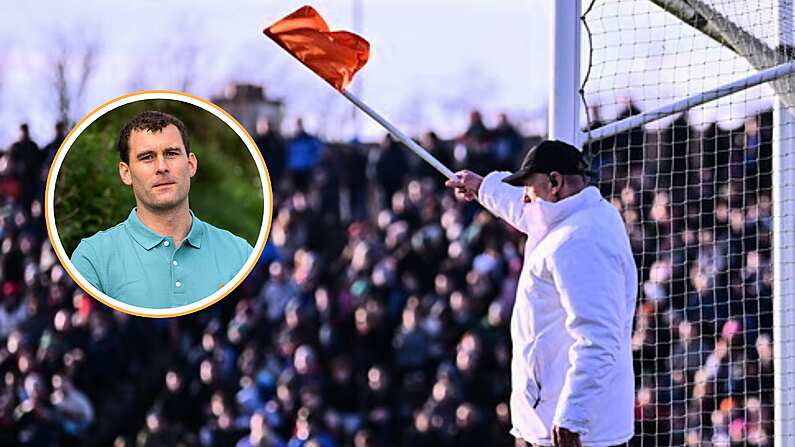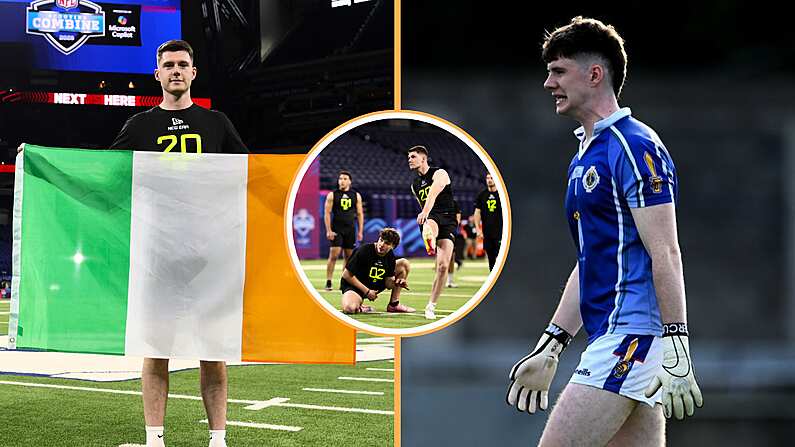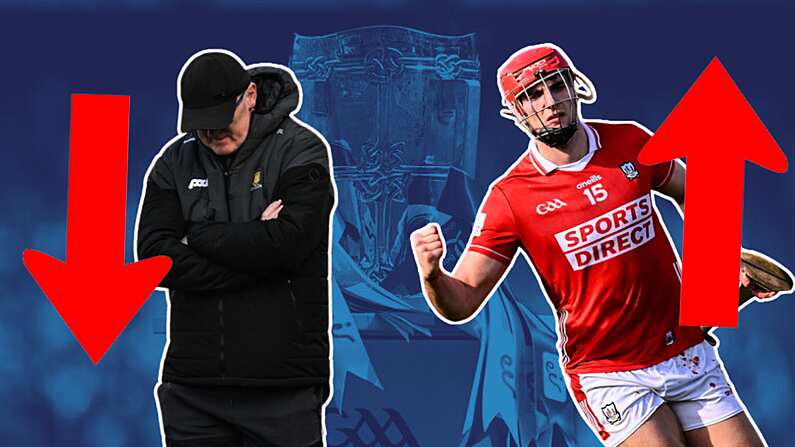Even by the standards of the conversion obsessed, scoring zone dominated, basketball-influenced modern game, Dublin are a football team who utilise space better than any other.
In training or in matches, they place a heavy emphasis on this aspect. Sky Sports sideline reporter and former Dublin footballer Senan Connell said as much during their Super 8s game vs Roscommon in Croke Park. Jim Gavin and his backroom team were concerned with the zones players were occupying off kick-outs.
"Jason Sherlock has been in on every kick-out and he is pointing to the centre forward position," explained Connell. "The Dublin sideline have identified that centre forward position as an area Dublin are conceding a bit of space. He is ruthless getting the message to James McCarthy, Brian Fenton and Michael Darragh Macauley to get into that hole."
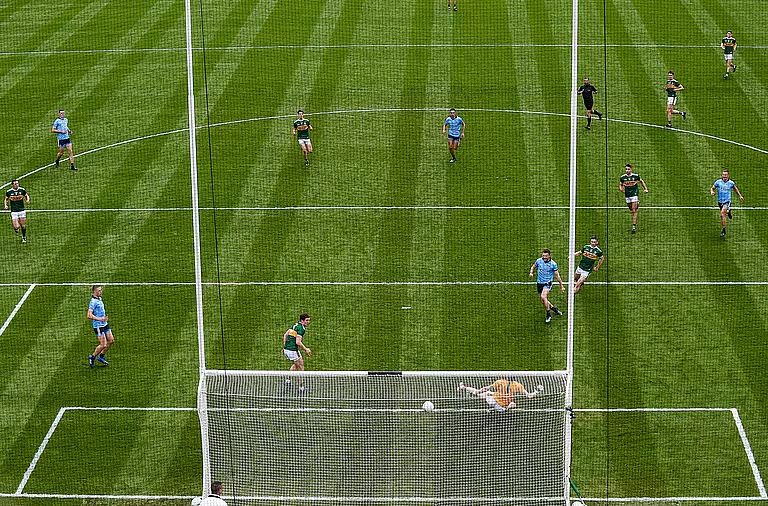
A deadly blue tidal wave. In full flow, they are an unrelating phenomenon blowing through games. Yet what is most impressive is their ability to manoeuvre around obstacles and change their shape depending on circumstances.
"The best way to play Dublin is to mirror what they do," Meath coach Colm Nally tells Balls.ie. "Not everyone has the personnel to do that, it is very difficult. But Kerry do. That is the beauty of last week's game. Dublin and Kerry are so well-coached."
That was apparent from Kerry's infrequent press. When given the opportunity, they deployed a variation of what Dublin did in their semi-final demolition of Mayo.


After 11 minutes, Kerry had 0-2 on the board and it could have been more if not for a missed penalty. Remarkably, all three came after turning over the ball on a Dublin short kick-out.
The true test of a successful kick-out is not retention but converted scores. The best chance of orchestrating a score is going long and therefore, Kerry wanted Dublin to go short.
So they set a trap. A high press denied Stephen Cluxton an easy option out the field, but they left members of the full-back line unmarked, enticing him to go short.
Kerry's first point was scored by Sean O'Shea but it came after Johnny Cooper was turned over.
Kerry quickly pressed Johnny Cooper. The Dublin corner-back managed to spin out of the first tackle.

But Adrian Spillane rattled him with a shoulder and the ball broke.

The ball was moved to Sean O'Shea who got Kerry off the mark.
"They were trying to tempt him to go to that corner. They leave his weakest option as free as possible," outlines Nally.
Their next point was scored by David Clifford but it came after Michael Fitzsimmons tried to carry the ball out but was turned over by Adrian Spillane.

From the resulting kick-out, Cluxton went short, this time to Davy Byrne. Dublin tried to work the ball up the field and yet again, the Kingdom turned it over.
Dublin tried to run the ball up the field but eventually, it went to deck for a Kerry turnover.

Paul Geaney went long and it resulted in a penalty.

From the next four kick-outs, Cluxton went long every single time. Off those kick-outs, Dublin scored 1-1. As Nally articulates, that is the beauty of having the greatest of all-time between the sticks.
It is so hard to spook Stephen Cluxton. In my eyes, that is his biggest weapon. When other keepers make a mistake they are rattled for three or four, not him. His game sense is fantastic. He would not need anyone to tell him not to try that kick-out again.
What's more, he continued to adapt while going long. After O'Shea's '45 which came thanks to Cluxton's penalty save, he kicked it out wide to the Cusack Stand side. For the third time, Adrian Spillane managed to interrupt their flow and punched the ball forward for a Stephen O'Brien point.

His reaction was to kick to the Hogan Stand side for the next three. It paid off.
Outstanding work from Dublin as Jack McCaffrey sprints up the field and scores a goal! pic.twitter.com/xuzUZ4U3Sr
— The GAA (@officialgaa) September 1, 2019
Cluxton's in-game smarts were obvious in how he reacted to Johnny Cooper's red card. Kerry struggled to create an overlap despite having an extra man because Cluxton pushed up from his goal to mark their inside forward.
Down to 14 men so everyone pushes up and Cluxton marks Tommy Walsh.
The bogeymen refuse to die. pic.twitter.com/L4lNYx1km3
— Maurice Brosnan (@m_brosnan) September 1, 2019
So much of what Dublin do is simple and effective. Stephen Cluxton has played outfield with his club, Parnells. He understands outfield play and reacts to it. For a coach like Colm Nally, that is precisely what you want to develop through training.
Those scenerios are practised. They would prepare what to do if they lost a player in any position of the field. If you lost a corner-back or a full-back, everyone would drop one. That is something teams will practice.
Part of him pushing up on Tommy Walsh or whoever is just optics. When you glance up, this is about passing channels, Kerry and Dublin's forwards are moving for the kick-outs. If players are thinking two moves ahead and see Tommy Walsh with a body around him, they hesitate.
This is made in a split second. It is all optics. There is serious collateral damage with all of these things and they might not always come off. It is up to players to judge it.
And that is exactly what their players do. Many viewers will have noticed Dublin's players holding their arms aloft at different points during a game. Similarly, Ciaran Kilkenny spends huge portions of a game pointing and directing. For Nally, it is two parts of the same coin.
I thought Ciaran Kilkenny was immense in the second half. His ability to handpass a ball into space as a man is arriving is just brilliant. He conducts all of that. He stays behind the play and is constantly looking to get the ball and put it into space. A lot of players think when Kilkenny comes out he is not a threat, he is a massive threat. In my eyes that pass has to be stopped.
Every team has a stretch index. He is trying to orchestrate his team to stretch the opposition. A Dublin corner-back might get the ball and lays it off but they continue their run at pace, they get the ball again if no one tracks them. Someone has to step and go with them.
When you see Kilkenny pointing, he is telling players to get in there and get out. Get in, get marked, get out. It stretches the opposition.
Last weekend, it was Paddy Small who was clearly holding his hold aloft but the entire move was a perfect illustration of how to make and utilise space.
Dublin's second last attack starts with a Jack McCaffrey free. Brian Fenton clearly directs him.

The man they want on the ball is Ciaran Kilkenny.

Fenton spotted Kerry are stacked on the other wing so Dublin can drive forward into space.

They recycle ball and Kilkenny is there again.

Eoin Murchan calls for a pass but is standing still. So Kilkenny points him forward to move onto the ball.

There is nothing on so Kilkenny switches play to the other wing.

They attack down the left-wing and Small is set free.

He gets his shot away but it drops into Shane Ryan.

Shortly after, Dublin recover the ball and once again, Kilkenny starts the attack.

Much has been made of Paddy Small holding his hand up. But note just before it, Ciaran Kilkenny is shouting and directing him.

Small then holds his hand up.

Dublin's reaction is striking. Small immediately drives forward, everyone else vacates the space.

Despite being a man down in the final minute of an All-Ireland final and the five in a row on the line, Dublin stayed calm and work a scoreable free.
"When you are involved in coaching you are always looking at what other teams are doing and why they are doing it," says an impressed Nally.
That is a strategy, they probably have a title on that. Like 'cool ball' or something. When one of the players indicates, there might be certain time on the clock or just to take the sting out of it.
There are bouts of activity. It is well known if a ball stays in play for more than 90 seconds, teams tire and make poor decisions. Dublin are so fit that they can outlast that. I think Dublin try keep the ball. A team chases and might tire, then they might make an incorrect decision.
It is likely a signal to keep the ball for a bout of activity. I am not saying that is what it is, I’m saying that is what I think it is.
Dublin are so well conditioned over the years that they can last. They wait for the opposition to make a mistake. '
They withdraw bodies out the field in order to keep the ball. In doing so, they create space for their key danger men in the scoring zone. We saw this in the All-Ireland semi-final against Mayo. Johnny Cooper held his hand aloft after Lee Keegan's goal. Dublin flooded men out the field, recycled possession and worked it inside to Con O'Callaghan. This time, the pass was a yard too long and Mayo keeper Rob Hennelly got there first.


Nally is not alone in believing the best way to beat Dublin is to continually play them. Other coaches have said similar and certain Kerry players were familiar with Dublin's manipulation of space from the Allianz League game in Tralee.
Dublin struggled to chase the day that February day. They still had not entered any real block of training and it showed as they found it difficult to break down Kerry. Yet, their thinking was obvious.
After 14 minutes in the second half, Dublin had only registered 0-3. They engaged in a lengthy attack without ever really penetrating until finally, Brian Howard won a free.
Jack McCaffrey raced in and gave Howard the instruction.

From the free, Howard kicked the ball high, towards the wing and backwards.

As Dublin began to attack, Con O'Callaghan raised his hand.

Immediately, Dublin's other forwards began to move and create space.

In resulted in O'Callaghan free and unmarked screaming for the ball.

This time, he does not get it. Darren Gavin attempts a shot and it goes wide. O'Callaghan watches on visibility frustrated. Gavin would later be taken off with Michael Darragh MacAuley coming on.

Peter Keane's young charges have the gall but they'll need to demonstrate huge wherewithal on top of it next Saturday. Aptitude with the attitude, key components to topple this empire.
Images: Sky Sports.
SEE ALSO: The Coaching Ingenuity That Fuels All-Ireland Aspiring Sides



